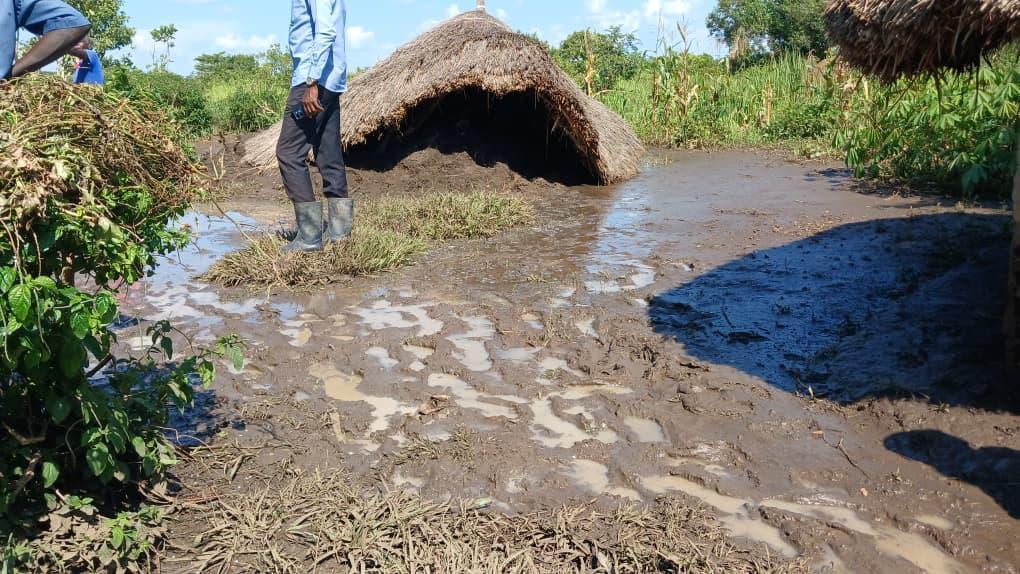Africa-Press – Uganda. On a typical market day, Alebtong’s dusty murram roads bustle with farmers balancing sacks of cassava on bicycles, schoolchildren hurrying along paths, and boda-bodas ferrying passengers to trading centres.
Today, those same roads resemble rivers. Torrential rains over the past week have left bridges submerged, culverts washed away, and entire villages cut off.
From Omoro to Aloi Sub-county, the swollen Rivers Moroto and Ayumu have burst their banks, swallowing gardens, homes, and schools. Communities that rely on small-scale farming now face devastation.
“This year the floods are worse. The rivers crisscrossing Alebtong are swollen, washing away murram fill and eroding our roads. Some villages are completely inaccessible unless people wade through dangerous waters,” said Tom Richard Opio, Alebtong District Engineer.
The floods have already claimed lives. In both Adwir and Omoro sub-counties, two residents drowned attempting to cross swollen streams. Yet, in the absence of alternatives, families continue to take risks.
In Aloi, Grace Akello, a 37-year-old mother of five, showed the remains of her cassava garden submerged in ankle-deep water.
“The water uprooted everything. The cassava is rotting in the soil. The maize gardens are gone. We eat what we can salvage, but when it is finished, I don’t know what will happen to my family,” she said.
Across Alebtong, subsistence farmers, who make up over 80 percent of the district’s population, report destroyed gardens.
In Aloi, residents estimate that more than half of this season’s crops have been lost.
Transport has also been crippled. At Apak Bridge, young men have set up an improvised ferry service, wading across the water to carry motorcycles, bicycles, and luggage. A motorcycle transport costs between Shs15,000 and Shs30,000.
“It is risky, but we have no choice. Without the help of these young men who know how to swim, I cannot cross this water,” said Vincent Olang, a resident of Otuke.
Even money cannot guarantee safety. In Omoro, children have missed weeks of school due to cut-off roads. Opio Michael, a teacher at Adwir Primary School, said the school was forced to break for holidays early, following guidance from District Chief Administrative Officer Franco Olaboro.
“Access to health facilities, markets, and schools is greatly disrupted. Families are stranded, and the longer this goes on, the more the risk of hunger and disease will increase,” Olaboro said.
Alebtong’s plight mirrors a growing crisis across Northern Uganda, where erratic climate patterns are taking a heavy toll.
In neighboring Dokolo, Otuke, Amolatar, Kwania, and Apac, seasonal floods have washed away bridges and left families homeless. Authorities link the increasingly erratic rainfall and extreme floods to climate change.
Back in Alebtong, the district engineer said his team is preparing a bill of quantities to prioritize urgent repairs once the waters recede.
But residents fear the damage to livelihoods is already done.
“Even if the roads are fixed, the gardens are gone. We plant to eat and sell a little. If the crops are destroyed, there will be hunger,” said Martine Odur, LC1 chairperson of Onir Village in Aloi Sub-county, who is currently housing a family of six displaced by the floods.
Local leaders have appealed for relief from the Office of the Prime Minister, but with multiple districts affected, it remains unclear when assistance will arrive.
For More News And Analysis About Uganda Follow Africa-Press






